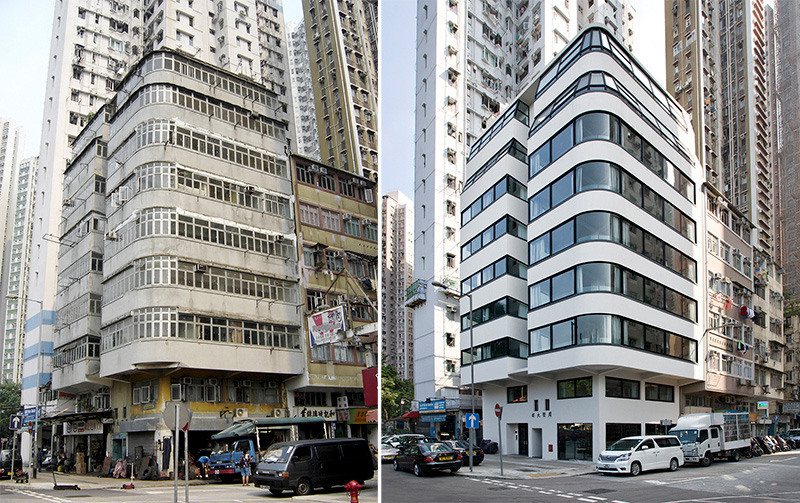
New York’s Home-Sharing Law: An Obstacle To Combatting The Consequences Of Gentrification
February 1, 2017Archives . Authors . Blog News . Feature . Feature Img . Policy/Contributor Blogs . Recent Stories . Student Blogs ArticleGentrification, the process of renewal and rebuilding which accompanies the migration of middle-class or affluent people into historically poor urban areas, may on its face seem beneficial for all members of a community. After all, gentrification provides numerous benefits to blighted neighborhoods – it can help stimulate economic growth, garner greater resources for public education, public safety, and other areas of public welfare through increased property taxes, and provide new job opportunities for community members. While these benefits are noteworthy, the poor and people of color rarely enjoy them.
Gentrification emphasizes the interests of the middle and upper classes—frequently at the expense of the poor and communities of color. With the renewal and rebuilding of dilapidated structures comes higher property values, large corporations and businesses that target the middle and upper classes, and highly skilled workers. The result is often the displacement of poor communities of color from the neighborhoods they have lived in their whole lives and embraced as their own. Thus, while gentrification encourages economic growth, it also results in increased homelessness among the original residents who cannot keep up with the rising property values.
In an attempt to combat the negative consequences of gentrification, many low-income residents across the country have turned to home-sharing (i.e. Airbnb) as an additional source of income. For example in recent years, low-income communities in New York City have experienced an 80% increase in home-sharing earnings, particularly in zip codes with the largest percentage of African American residents. This additional source of income is often the difference between the displacement of low-income residents and the opportunity to keep families in their cherished neighborhoods.
However, rather than recognizing the value of home-sharing (especially for communities of color), the New York Legislature recently passed a bill that essentially outlaws home-sharing for millions of New Yorkers. This bill prohibits home-sharers from advertising or renting out their homes for less than 30 days and penalizes violators with fines of up to $7,500. The New York Legislature argues that the new bill would reinforce an existing law that seeks to prevent landlords from setting up illegal hotels by removing apartments from the permanent rental market and instead promoting only full-time, short-term rentals. While the new bill could effectively mitigate the creation of illegal hotels, it is clear that it will penalize innocent home-sharers who depend on home-sharing earnings to remain in neighborhoods that they may not otherwise be able to afford.
Because home-sharing is more common in minority communities, this new bill presents an additional housing obstacle that threatens to have a greater impact on people of color. Under the pressure of hotel unions, Governor Cuomo recently signed the anti-home-sharing bill thereby ensuring that the new law will become enforceable beginning November 1, 2016. In response, Airbnb immediately filed a lawsuit to block the new law which it has called unconstitutional, and has publicly released new home-sharing rules that would limit the number of listings a person can have on its site to one, crack down on repeat violators, and push for permission to collect and remit hotel-like taxes as an alternative to the anti-home-sharing law. It is unclear whether the federal court in Manhattan will block the new law; however, if it chooses to give deference to the New York Legislature, thousands of home-sharers will lose their additional sources of income and possibly their homes. The case is Airbnb Inc. v. Schneiderman, 16-cv-08239, S.D.N.Y. and its progress can be followed here.
Suggested citation: Donovan Suh, New York’s Home-Sharing Law: An Obstacle To Combatting The Consequences Of Gentrification, Cornell J.L. & Pub. Pol’y, The Issue Spotter, (Feb. 1, 2017), https://live-journal-of-law-and-public-policy.pantheonsite.io/new-yorks-home-sharing-law-an-obstacle-to-combatting-the-consequences-of-gentrification/.
You may also like
- November 2024
- October 2024
- April 2024
- March 2024
- February 2024
- November 2023
- October 2023
- April 2023
- March 2023
- February 2023
- January 2023
- December 2022
- November 2022
- October 2022
- May 2022
- April 2022
- March 2022
- February 2022
- January 2022
- December 2021
- November 2021
- October 2021
- May 2021
- April 2021
- March 2021
- February 2021
- January 2021
- November 2020
- October 2020
- September 2020
- August 2020
- July 2020
- June 2020
- May 2020
- April 2020
- March 2020
- February 2020
- January 2020
- November 2019
- October 2019
- September 2019
- April 2019
- February 2019
- December 2018
- November 2018
- October 2018
- September 2018
- March 2018
- February 2018
- January 2018
- December 2017
- November 2017
- October 2017
- September 2017
- May 2017
- April 2017
- March 2017
- February 2017
- December 2016
- November 2016
- October 2016
- April 2016
- March 2016
- February 2016
- January 2016
- December 2015
- November 2015
- October 2015
- June 2015
- May 2015
- April 2015
- March 2015
- February 2015
- January 2015
- December 2014
- November 2014
- October 2014
- August 2014
- March 2014
- February 2014
- January 2014
- December 2013
- November 2013
- October 2013
- September 2013
- May 2013
- April 2013
- March 2013
- February 2013
- January 2013
- December 2012
- November 2012
- October 2012
- September 2012
- June 2012
- April 2012
- March 2012
- February 2012
- January 2012
- December 2011
- November 2011
- October 2011
- September 2011
- August 2011
- April 2011
- March 2011
- November 2010
- October 2010
- September 2010